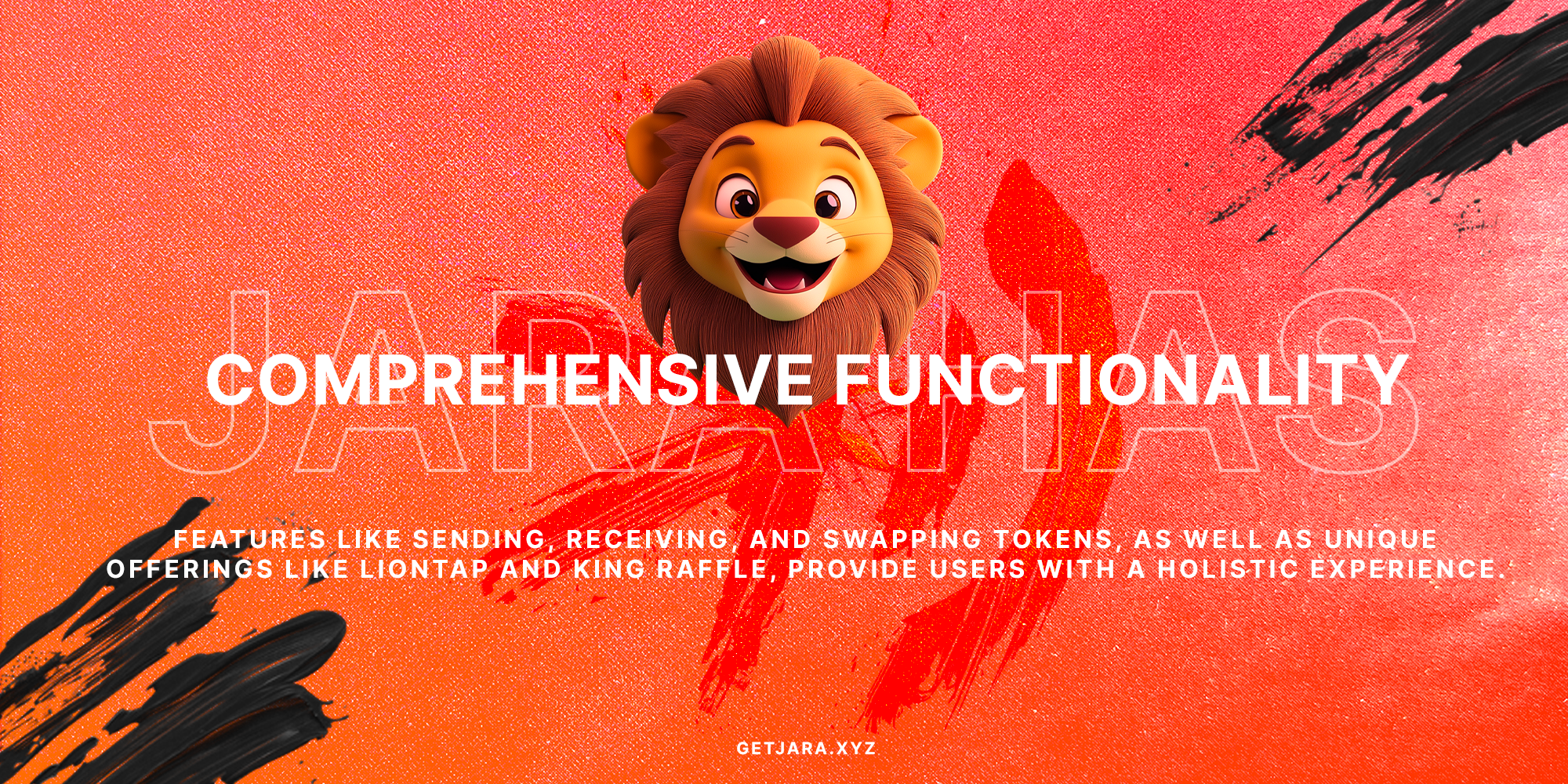Understanding Tokenized Stocks: A New Era in Equity Markets
Have you ever wondered how you could own a piece of a company without the constraints of traditional stock exchanges? Welcome to the world of tokenized stocks. Tokenized stocks are digital assets that represent shares in a company, but with a modern twist – they are hosted on a blockchain. This isn’t just an evolution; it’s a revolution in how equity markets function.
What are tokenized stocks? Tokenized stocks are digital representations of traditional stock shares that operate on a blockchain network, allowing easier access and tradeability for investors worldwide.
Imagine being able to hold your company’s shares in a digital format that you can manage from your smartphone. This is not science fiction; it’s the new reality powered by blockchain technology. By providing greater liquidity and transparency, tokenized stocks make owning a part of a company as simple as sending a text. They not only democratize asset ownership but also provide global accessibility, allowing investors from underrepresented regions, like Africa, to participate in global markets.
The Mechanics of Tokenized Stocks
Tokenized stocks work by creating digital tokens that mirror the value and rights of traditional stocks. These tokens are issued on blockchain platforms, which pinpoint security and transparency as their core features. Curiously, how are these tokens brought into existence? Through a process known as tokenization, where physical assets are converted into digital representations.
The blockchain’s immutable and transparent nature ensures every transaction, whether a purchase or a trade, is secure and visible. Smart contracts take it a step further, allowing automatic execution of dividends or voting rights, which means no missing out on the benefits of traditional stocks, plus the added power of blockchain’s borderless accessibility.
The Promise of Tokenized Stocks
Tokenized stocks hold numerous advantages over their traditional counterparts. Here are some key benefits:
- Increased Liquidity: With the option of 24/7 trading, tokenized stocks remove the barriers of time zones and market hours, offering instant transactions.
- Broader Market Access: Encourage participation from diverse and globally dispersed investors, thus democratizing equity investing.
- Enhanced Security: Leveraging blockchain ensures transactions are secure and transparent, reducing the risk of fraud.
- Fractional Ownership: Allow investors to purchase fractions of stocks, thus lowering the entry barriers for a wider audience.
The ability to trade anytime from anywhere opens up new investment avenues. This shift not only empowers individual investors but also plays a significant role in economic growth for underrepresented regions. The integration of stablecoins adds an additional layer of stability, pairing innate cryptocurrency advantages with real-world accessibilities.
Challenges in Adopting Tokenized Stocks
Despite their promising outlook, tokenized stocks aren’t without challenges. Regulatory uncertainties, technological hurdles, and cybersecurity concerns are prominent issues that affect their adoption. Regulatory frameworks need to catch up with these technological advances to ensure investor protection and market integrity. As these sectors evolve, the significance of regulatory challenges becomes clear in navigating the legal landscapes effectively.
What are the risks with tokenized stocks? Risks include regulatory shifts, potential hacking due to their digital nature, and fluctuating market conditions that might affect token value.
Technological risks also pose threats, necessitating robust security measures and skilled oversight. This is where the Jara platform shines through with its strong infrastructure designed to safeguard investments.
The Future of Tokenized Equities
The future is brimming with potential for tokenized stocks. As blockchain evolves and regulatory landscapes stabilize, we expect to see growth in adoption, redefining how we think about investment. The integration with real-world assets and sectors like infrastructure and real estate creates exciting opportunities.
Jara is at the forefront of this movement by leveraging the $JARA token to bring global capital to African assets. Their revolutionary ecosystem demonstrates how tokenized stocks can lead to more inclusive financial markets, forging connections between global investors and African opportunities.
“Jara – Unlocking the Future of Africa’s Blockchain Ecosystem. By participating, you’re part of a digital transformation paving the way for future investments.”
In conclusion, while the path to widespread adoption of tokenized stocks may be fraught with challenges, the advantages they offer are immense. As the world gravitates towards digital investments, embracing such innovations is not just beneficial but essential for anyone looking to capitalize on future financial trends.
Understanding the Concept of Tokenized Stocks
Tokenized stocks are a groundbreaking development in finance, leveraging blockchain technology to represent equity in digital form. By providing a more accessible and liquid form of ownership, tokenized stocks are transforming how investors engage with equity markets.
“Tokenized stocks democratize investments, breaking down barriers and making stock ownership globally accessible.” – Insight into Global Markets
Key Features of Tokenized Stocks
- Digital Representation: Operate on a blockchain network, allowing easier access and tradeability.
- Accessibility: Traded 24/7, removing geographical limitations and trading hour restrictions.
- Enhanced Liquidity: Because they are easily tradeable, tokenized stocks offer heightened market fluidity.
The Role of Blockchain in Equity Markets
Blockchain technology serves as the backbone of tokenized stocks, ensuring transactions are secure, transparent, and efficient. Its decentralized nature removes intermediaries, potentially reducing costs and accelerating the settlement process.
“Blockchain replaces delay with instant verification and transparency.” – Market Innovation
How Blockchain Enhances Equity Markets
- Immutability: Once a transaction is recorded, it cannot be altered, ensuring security.
- Decentralization: Opens up investment opportunities, previously available only to large institutions.
- Efficiency: Allows for near-instantaneous settlements, reducing time and cost.
Advantages and Challenges of Tokenized Stocks
Advantages
- Democratization: Lowering the barrier for entry with fractional ownership.
- Global Participation: Allows investors regardless of location to partake in global markets.
- Cost-Effective: Reduces reliance on intermediaries, cutting transaction fees.
Challenges
- Regulatory Uncertainty: The legal framework is still evolving, making compliance complex.
- Security Risks: Although secure, blockchain technology isn’t entirely immune to cyber threats.
- Market Volatility: Tokenized equities may experience fluctuating values due to market and regulatory dynamics.
“The journey of tokenized stocks is unfolding, offering both revolutionary potential and challenges ahead.” – Financial Insights
Tokenized Stocks in Emerging Markets
Emerging markets stand to benefit significantly from the advantages of tokenized stocks. By offering access to capital that was previously inaccessible due to geographical and economic barriers, tokenized equities promote global financial inclusion.
African Market Potential
- Infrastructure Projects: Tokenization of projects like the Lagos airport enhances investment opportunities.
- Democratized Access: Bridges the capital gap by inviting global investors into African markets.
- Economic Growth: Drives financial transformation and infrastructure development.
Preparing for the Future of Tokenized Stocks
The transition to a more inclusive financial system through tokenized stocks is already underway. Platforms like Jara are spearheading these innovations, harnessing blockchain technology to integrate global capital with African assets.
“Jara aligns with Africa’s vast digital potential, inviting global investors to propel this dynamic ecosystem forward.” – Economic Times
Innovative Investment Platforms
- Decentralized Trading: Encourages transparency and cost efficiency by reducing intermediary reliance.
- Compliance and Security: Regulatory challenges are addressed through robust security measures and technological advancements.
By embracing these advancements, investors and platforms position themselves at the forefront of financial innovation. Ready to explore the limitless potential and reshape your investment landscape? Discover more about how tokenized stocks and blockchain technology are transforming financial systems globally.

Understanding Tokenized Stocks in a Changing Financial Landscape
Tokenized stocks are revolutionizing equity markets by leveraging blockchain technology to create a more accessible and inclusive financial ecosystem.
The Basics of Tokenized Stocks
Tokenized stocks represent an innovative fusion of traditional stock assets and blockchain technology, allowing these assets to be digitized and traded on blockchain platforms. This evolution presents a host of new investment opportunities by breaking down traditional barriers.
- Definition: Tokenized stocks are digital equivalents of traditional shares, created and managed on a blockchain network.
- Functionality: These digital tokens mirror real shares of a company, maintaining essential shareholder rights such as dividends and voting.
- Creation Process: Tokenization involves converting physical stock certificates into digital tokens via blockchain technology.
The Role of Blockchain in Tokenized Equity Markets
Blockchain acts as the backbone for tokenized stocks, providing a decentralized framework that enhances transparency, security, and operational efficiency.
| Feature | Benefit |
|---|---|
| Decentralization | Empowers global trade and removes intermediaries, reducing transaction costs. |
| Immutability | Ensures secure, tamper-proof records of all transactions. |
| Smart Contracts | Automate functions like dividend distribution and shareholder voting without human intervention. |
Advantages of Tokenized Stocks
Tokenized stocks offer significant benefits over traditional stock markets, making them an attractive investment option for a diverse range of investors.
- Enhanced Liquidity: Tokenized stocks can be traded 24/7, providing continuous market access.
- Fractional Ownership: Enables buying and selling portions of expensive stocks, lowering investment barriers.
- Reduced Costs: Minimizes transaction fees by bypassing traditional financial middlemen.
“Jara – Unlocking the future of Africa’s blockchain ecosystem, providing access to global investments through tokenized stocks.”
Challenges and Considerations
Despite their advantages, tokenized stocks come with several challenges that need to be addressed for widespread adoption.
- Regulatory Environment: As blockchain and digital assets evolve, regulatory compliance is crucial but complex.
- Security Risks: Digital tokens are prone to hacking and cyber threats, necessitating robust security measures.
- Market Volatility: The fluctuating nature of digital assets can lead to significant price variations, reflecting uncertainties in regulatory and technological landscapes.
Future Prospects of Tokenized Stocks
The promise of tokenized stocks lies in their potential to democratize investment and enhance the accessibility of global markets. As regulatory environments stabilize, these digital assets are poised for substantial growth.
- Market Expansion: Tokenization is expected to foster inclusivity, empowering underrepresented regions like Africa to engage with international financial markets.
- Technological Integration: The integration of blockchain with emerging technologies like AI and IoT could herald new financial innovations.
- Global Connectivity: As markets become more interconnected, platforms like Jara will play crucial roles in facilitating cross-border investments.
The Role of $JARA in Africa’s Digital Revolution
The $JARA token exemplifies how tokenized stocks can drive digital transformation within emerging markets by linking global investors with African assets.
- Financial Inclusion: $JARA facilitates access to capital and investment opportunities in projects like the Lagos airport.
- Secure Framework: Built on a Caldera Layer 2 blockchain, $JARA ensures safe and reliable transaction processes.
- Supporting Development: By investing in infrastructure and real estate, $JARA helps bridge economic gaps in African markets.
Explore the future of blockchain and tokenization by joining Jara on its mission to revolutionize African finance.
Conclusion
As we stand at the brink of a new era in equity markets, tokenized stocks offer compelling advantages that could reshape the global financial landscape. With platforms like Jara leading the charge, individuals and institutions alike have the opportunity to participate in this transformative journey, unlocking unprecedented access and innovation.
For more insights into how blockchain is reshaping equity markets and enhancing investor opportunities, stay connected through our dedicated platforms.
What are Tokenized Stocks?
At its core, tokenized stocks represent a fusion of traditional equity and cutting-edge blockchain technology. Imagine your conventional stock certificates being converted into a digital format, allowing them to be stored, traded, and continuously tracked on a blockchain. This isn’t just a tech upgrade—it’s a transformative shift in how we perceive equity markets, offering unparalleled flexibility and access to investors worldwide.
Tokenized stocks are digital representations of equity that harness blockchain for a more accessible and dynamic investment experience.
These digital assets are a straightforward way for investors globally to own fractional shares, potentially at lower costs than traditional methods. This broadens accessibility to global markets, fostering a more inclusive financial ecosystem.
Blockchain’s Role in Tokenized Stocks
Tokenized stocks utilize blockchain to ensure transparency, security, and efficiency in trading. The blockchain ledger records every transaction, offering an immutable and decentralized record that minimizes human error and processing delays. This is akin to enhancing an old steam locomotive into a bullet train—sleek, fast, and reliable.
Why is this critical? Blockchain enhances security and transparency, making it a vital cornerstone for future stock issuance. It acts as a tamper-proof lock, securing investor confidence by maintaining unalterable transaction records.
Advantages of Tokenized Stocks
- Enhanced Liquidity: Unlike traditional stocks, tokenized versions can be traded around the clock, offering continuous access across borders.
- Fractional Ownership: Investors can buy smaller portions of expensive stocks, democratizing access and lowering the entry barrier for a diverse range of investors.
- Reduced Transaction Costs: By cutting out intermediaries, tokenized stocks lower costs involved in the trading process.
“Tokenized stocks offer enhanced liquidity and fractional ownership, reshaping investment accessibility and cost-efficiency.”
Challenges and Risks of Tokenized Stocks
While offering significant advantages, tokenized stocks also come with challenges that must be addressed. These include regulatory uncertainty, security risks, and technological hurdles, each crucial in ensuring investors’ trust and safety.
Regulatory Challenges
- Complex Legal Landscape: Legal frameworks for tokenized stocks are still evolving, which can complicate compliance and investor protection efforts.
Security Risks
- Cyber Threats: Despite blockchain’s robust security, tokenized stocks are digital and prone to hacking risks, emphasizing the need for secure digital wallets and private key management.
The Future of Tokenized Stocks
The horizon for tokenized stocks is bright, especially as regulatory bodies begin to establish clearer frameworks. With African markets, such as those powered by Jara, pioneering these changes, tokenization promises to revolutionize financial inclusivity and investment opportunities.
“Tokenization is transforming global markets by democratizing access and fostering innovation.”
With platforms like Jara, the financial market is reimagined to offer investors streamlined, secure access to global assets. The evolution of tokenized stocks is a narrative of disruptive potential, ready to redefine how we interact with equity markets globally.
Explore Related Articles

What are tokenized stocks?
Tokenized stocks are digital representations of traditional stock shares that are recorded on a blockchain. This technology allows for faster trading, increased security, and potentially broader access to the market.
Tokenized stocks create digital shares using blockchain technology, offering new ways to trade and invest.
How does blockchain enhance security in tokenized stocks?
Blockchain enhances security in tokenized stocks by recording each transaction on a decentralized ledger that is nearly impossible to alter or hack, thus providing increased transparency and trust.
- Immutable Records: All transactions are final and cannot be changed.
- Transparency: Every transaction is visible on the blockchain.
What challenges do tokenized stocks face regarding regulation?
Tokenized stocks face significant regulatory challenges, as they must comply with traditional securities laws, which are not always adapted to digital technologies. Jurisdictional discrepancies and the evolving nature of crypto regulation also pose challenges.
Regulatory frameworks for tokenized stocks are still developing, creating uncertainty in compliance obligations.
How might tokenized stocks influence the future of equity markets?
Tokenized stocks could revolutionize equity markets by enhancing accessibility, enabling 24/7 trading, and attracting a diverse range of investors. This shift could make financial markets more inclusive and dynamic.
Understand the future impact of tokenization on equity markets.

Further Reading
Explore more about how tokenization is transforming the financial landscape with these related topics:

Take the Next Step in Your Investment Journey
As blockchain technology continues to revolutionize equity markets, now is the perfect time to explore the potential of tokenized stocks. Whether you’re new to the world of crypto or a seasoned investor, Jara Wallet can be your gateway to accessing the global capital market seamlessly.
Ready to revolutionize your investment experience? Download the Jara Wallet app today and explore the future of investment in tokenized stocks. Stay connected by following us on social media to keep up with the latest updates and insights. Let Jara guide you in navigating the exciting world of tokenization.
Experience the best in crypto investment tools with Jara Wallet, where innovation meets security. Start your journey with us:
- Download on Android: Get Jara Wallet
- Download on iPhone: Get Jara Wallet
Follow Jara on social media to stay ahead of trends and connect with a community eager to explore the potential of blockchain technology in equity markets. Join us and be part of the financial revolution.
What is Personal Injury Law?
Personal injury law is a legal framework that allows victims who have been physically or emotionally injured to seek compensation from the responsible party. Understanding how this area of law works can assist victims in identifying their legal rights and options.
Types of Personal Injury Cases
- Car Accidents: Often result from negligence and can involve multiple parties, including drivers, manufacturers, and pedestrians.
- Slip and Fall: Property owners may be accountable for injuries if they fail to maintain safe premises.
- Medical Malpractice: Occurs when healthcare professionals fail to provide the standard care, leading to patient harm.
- Product Liability: Manufacturers can be held liable if their products cause injury due to defects or mislabeling.
How to Prove a Personal Injury Claim
Proving a personal injury claim requires demonstrating that the defendant’s actions caused the injury. Essential elements include:
- Duty of Care: Establishing that the defendant owed the plaintiff a legal duty of care.
- Breach of Duty: Showing that the defendant violated this duty through their actions or inactions.
- Causation: Proving that the breach directly led to the injury.
- Damages: Demonstrating that the injury resulted in compensable damages, such as medical bills or lost wages.
Common Mistakes in Personal Injury Claims
Avoiding mistakes is crucial for the success of a personal injury claim. Common errors include:
- Delayed Medical Treatment: Failing to seek immediate medical attention can weaken your case.
- Ignoring Legal Timelines: Missing the statute of limitations can forfeit your right to claim.
- Inadequate Documentation: Lack of evidence can hinder your claim’s success.
The Role of a Personal Injury Lawyer
Hiring a personal injury lawyer can greatly benefit your case by providing expert legal advice, navigating complex legal processes, and negotiating fair compensation. Lawyers understand the intricacies involved in personal injury claims and work diligently to protect your rights.
Choosing the Right Personal Injury Lawyer
Selecting a competent lawyer demands careful consideration. Critical factors include:
- Experience: Ensure the lawyer specializes in personal injury cases.
- Reputation: Review testimonials and success rates.
- Communication: Choose someone who communicates openly and keeps you informed.
“Your case is unique, and finding a personalized approach to your personal injury claim is essential for success. Trust our experienced attorneys to guide you every step of the way.”
Conclusion
A strong understanding of personal injury law and a strategic approach can significantly impact the outcome of your case. By avoiding common pitfalls, gathering robust evidence, and engaging experienced legal counsel, you can optimize your chances of receiving the compensation you deserve.

















